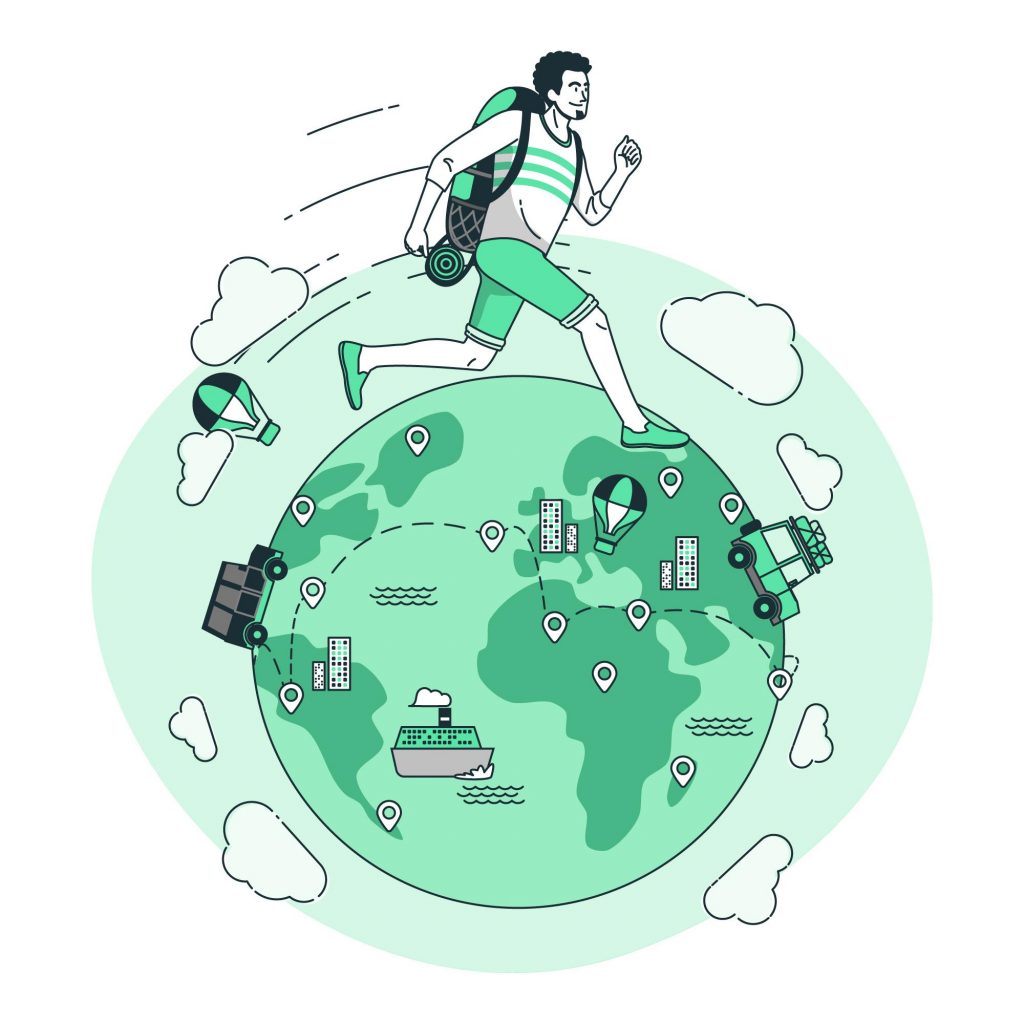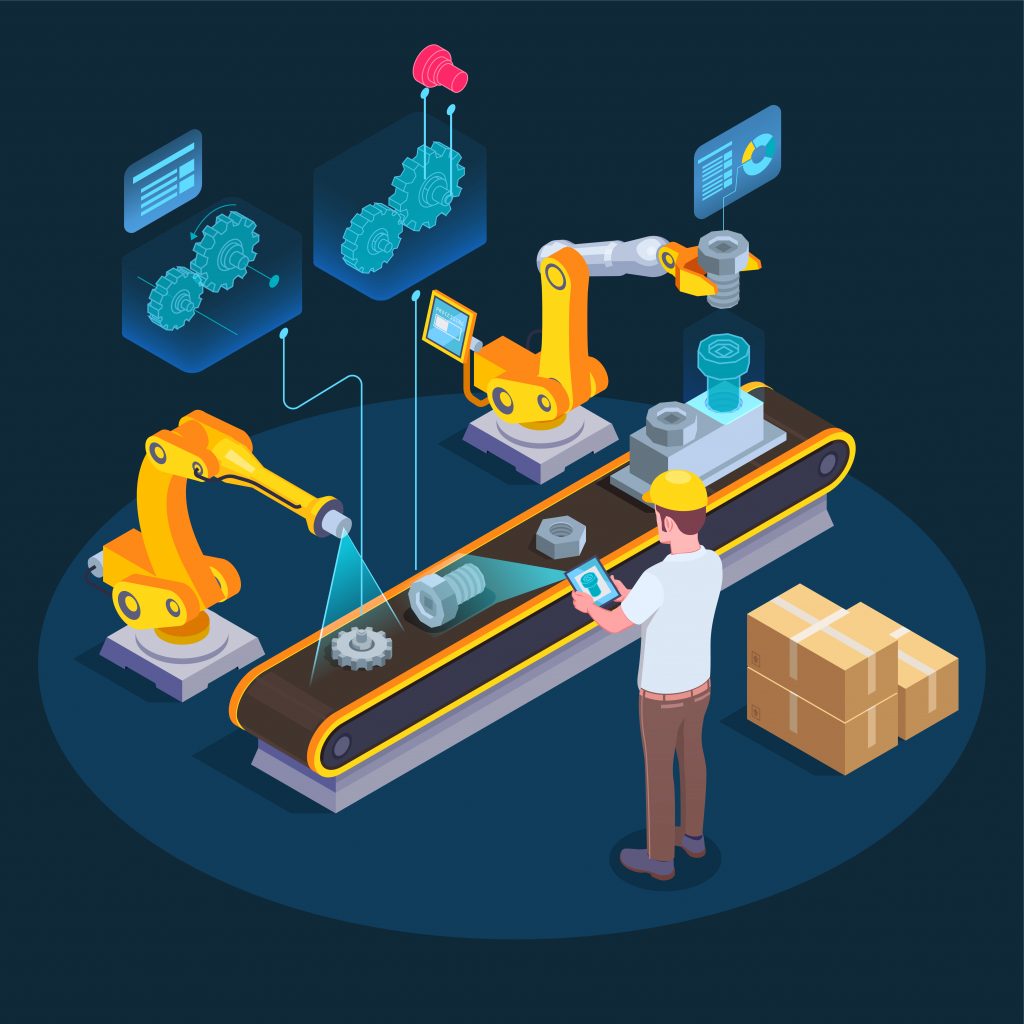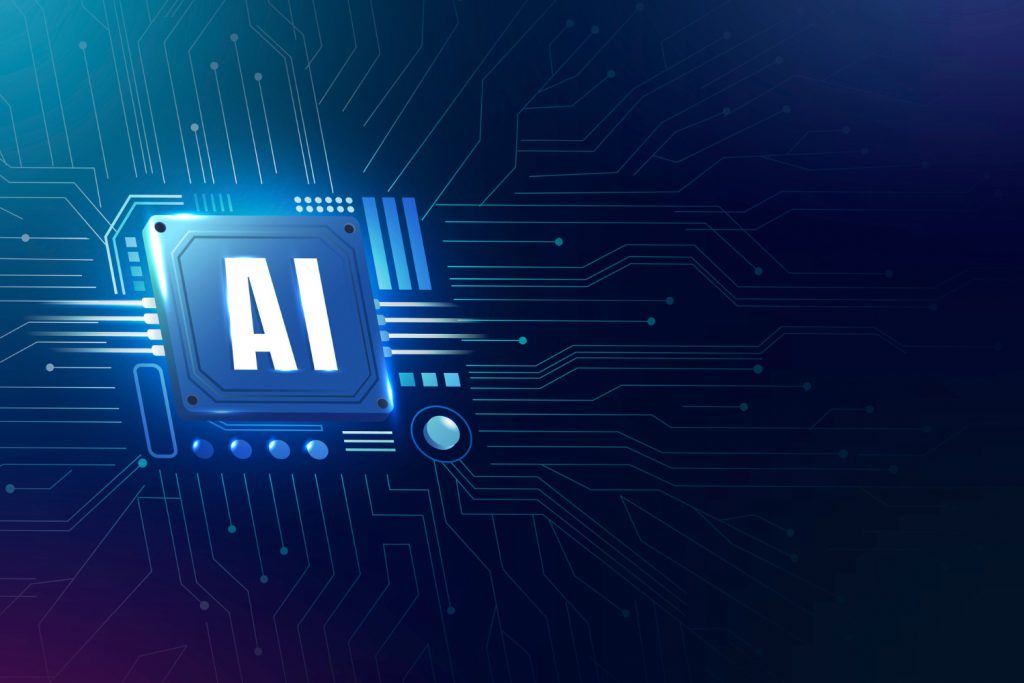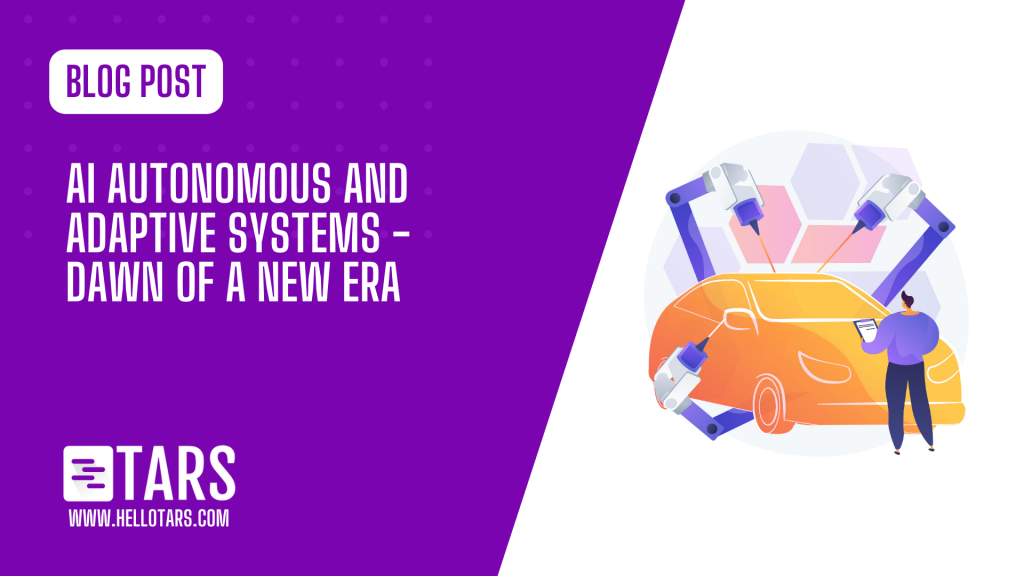Artificial Intelligence (AI) has revolutionized various industries, and the advent of AI autonomous and adaptive systems marks the dawn of a new era. These systems are poised to transform the way we interact with technology, opening doors to unprecedented possibilities.
In this blog, we will delve into the world of AI autonomous and adaptive systems and explore their significance in shaping our future.
Understanding AI Autonomous Systems
What are AI Autonomous Systems?

AI autonomous systems refer to intelligent systems capable of operating and making decisions independently, without human intervention. They leverage advanced algorithms and machine learning techniques to analyze data, learn from experiences, and adapt their behavior accordingly.
Key Characteristics and Benefits of Autonomous Systems
✅Independence: Autonomous systems can perform tasks without constant human oversight, enabling increased efficiency and scalability.
✅Decision-making: These systems are equipped with the ability to make informed decisions based on real-time data, optimizing outcomes.
✅Error reduction: By minimizing human errors, autonomous systems enhance precision and reliability in various domains, such as manufacturing, healthcare, and transportation.
Real-World Examples
✅Self-Driving Cars: Autonomous vehicles rely on AI algorithms to perceive their surroundings, interpret road conditions, and navigate safely, promising a safer and more efficient future of transportation.
✅Smart Homes: AI-powered smart home systems autonomously control temperature, lighting, and security, adapting to occupants’ preferences and optimizing energy consumption.
✅Industrial Automation: Autonomous robots and machines streamline manufacturing processes, reducing costs, and enhancing productivity.
Exploring AI Adaptive Systems

What are AI Adaptive Systems?
AI adaptive systems refer to intelligent systems that can learn from data and dynamically adjust their behavior to changing circumstances. These systems possess the capability to adapt and improve their performance based on feedback and new information.
Importance of Adaptability in AI Systems
✅Flexibility: Adaptive systems can respond to dynamic environments and evolving requirements, ensuring optimal performance.
✅Continuous Learning: These systems continuously learn from their experiences, enabling them to improve over time and adapt to new situations.
✅Personalization: Adaptive systems can tailor their responses and recommendations to individual users, enhancing user experience and satisfaction.
Synergy between AI Autonomous and Adaptive Systems

Comprehending the Interplay between Autonomous and Adaptive Systems
AI autonomous and adaptive systems are not mutually exclusive but rather work in synergy, enhancing each other’s capabilities. Autonomous systems provide the foundation for decision-making and execution, while adaptive systems refine and optimize their performance based on feedback and changing conditions.
How Autonomous and Adaptive Systems Enhance Each Other
✅Feedback Loop: Adaptive systems can provide valuable insights and feedback to autonomous systems, enabling them to make more informed decisions.
✅Continuous Improvement: Adaptive systems enhance the learning and decision-making abilities of autonomous systems, leading to improved efficiency, accuracy, and adaptability.
Realizing the Potential for Revolutionary Advancements
The integration of autonomous and adaptive systems opens the door to groundbreaking innovations across various industries, such as healthcare, transportation, manufacturing, and finance. These advancements have the potential to revolutionize processes, enhance safety, and unlock new possibilities for human-machine collaboration.
Industries Transformed by AI Autonomous and Adaptive Systems
Healthcare

AI autonomous and adaptive systems have the potential to revolutionize healthcare by improving diagnostics, treatment, and patient care.
✅Diagnosis and Imaging: Autonomous systems can analyze medical images, such as X-rays and MRIs, with high accuracy, aiding in the early detection of diseases and abnormalities.
✅Patient Monitoring: Adaptive systems can continuously monitor patients’ vital signs and provide real-time feedback to healthcare providers, allowing for early intervention and personalized care.
✅Drug Discovery: Autonomous systems can analyze vast amounts of data to identify patterns and predict the effectiveness of potential drugs, accelerating the discovery process.
Transportation and Logistics

The transportation industry can greatly benefit from AI autonomous and adaptive systems, leading to enhanced efficiency, safety, and sustainability.
✅Autonomous Vehicles: The integration of autonomous systems in vehicles can improve road safety, reduce traffic congestion, and optimize fuel consumption.
✅Route Optimization: Adaptive systems can analyze real-time traffic data and adjust routes dynamically, ensuring efficient logistics operations and timely deliveries.
✅Supply Chain Management: Autonomous and adaptive systems can optimize inventory management, predict demand, and streamline supply chain operations.
Manufacturing and Automation

AI autonomous and adaptive systems have the potential to revolutionize manufacturing processes, increasing productivity, and enabling customized production.
✅Robotic Automation: Autonomous robots can perform complex tasks with precision, increasing efficiency and reducing the need for human intervention.
✅Quality Control: Adaptive systems can analyze sensor data in real-time to identify defects or anomalies, improving product quality and reducing waste.
✅ Maintenance: Autonomous systems can monitor equipment health, detect potential failures, and schedule maintenance proactively, minimizing downtime and optimizing productivity.
Finance

The financial industry can leverage AI autonomous and adaptive systems to improve decision-making, risk management, and customer experience.
✅Automated Trading: Autonomous systems can analyze market data, identify patterns, and execute trades with minimal human intervention, enhancing efficiency and accuracy.
✅Fraud Detection: Adaptive systems can continuously learn from patterns and anomalies in financial transactions, enabling proactive fraud detection and prevention.
✅Personalized Financial Services: Autonomous and adaptive systems can analyze customer data to provide personalized recommendations, investment strategies, and financial advice.
Future Prospects and Opportunities

Growth Projections and Market Potential
The AI autonomous and adaptive systems market is expected to witness significant growth in the coming years, driven by advancements in technology and increasing adoption across various industries. According to market research, the global market for AI autonomous and adaptive systems is projected to reach billions of dollars by [insert year], indicating the immense potential and opportunities it offers.
Opportunities for Businesses and Individuals
The emergence of AI autonomous and adaptive systems presents numerous opportunities for businesses and individuals alike.
✅Business Transformation: Organizations can leverage these technologies to streamline operations, optimize resource allocation, and gain a competitive edge in their respective industries.
✅New Job Roles: The rise of AI autonomous and adaptive systems will create a demand for professionals skilled in AI development, data analysis, and system optimization, offering exciting career prospects.
Innovation and Entrepreneurship: The evolving landscape provides a fertile ground for entrepreneurs to develop novel applications, products, and services that harness the power of AI autonomous and adaptive systems.
How to Leverage the Power of AI for Your Business

At TARS we live and breathe conversational AI. Our mission: making AI accessible for everyone. With our newly released AI chatbot generator – Tars Prime, we have succeeded in making AI a lot more accessible than ever before.
Absolutely anyone can use Tars Prime to generate AI chatbots and these chatbots can be trained on any content or information of your choice. Sounds confusing? You can read the complete details here 👉 Tars Prime blog
Or, you can simply book a free demo and our team of experts will personally take you through all the details.
You can try out the Tars Prime tool for yourself here 👉 Try Tars Prime

My name is Vinit Agrawal and I am the Founder and CTO of Tars. I have been working on the Tars Chatbot Builder since 2015 and my core strength is in building software products with simple and functional user experiences focusing on bringing some core business results. My current role in the company is a mix of Product Manager, Engineering Manager and in Business & Marketing Strategy.

0 Comments on "AI Autonomous and Adaptive Systems – Dawn of a New Era"